Essential pages for your website
9th May 2022
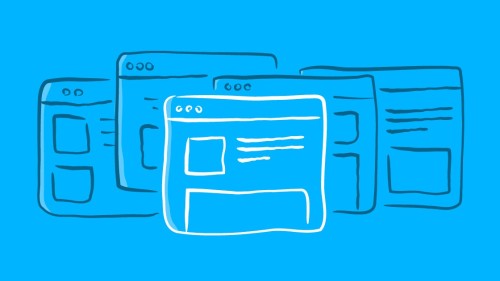
posted 9th May 2022
Getting a new website and not sure where to start with content? In this article we will run through the essential pages you should include on your new website, why you need them and what type of content you should have.
Your website is the window to your business, and it tells your potential customers what you do, where you do it and how they can use your services. It’s important that your website is easy to navigate and that all the information that your customers need to know is in the right places and quick to access. Below we have put together a list of pages we believe are essential to your website to start you off on the right foot.
Home Page
All websites have a home page and it is usually the first page your visitors will see; it needs to make a good impression. The home page is like a map or a guide; it should be a place that visitors can go back to if they need to find something new on your website. This page is an introduction to your services. The Home page should give a brief overview of your business and services, showcasing information on the main areas of your site. However, remember it’s just an introduction to the site and too much information can cloud a visitor’s experience.
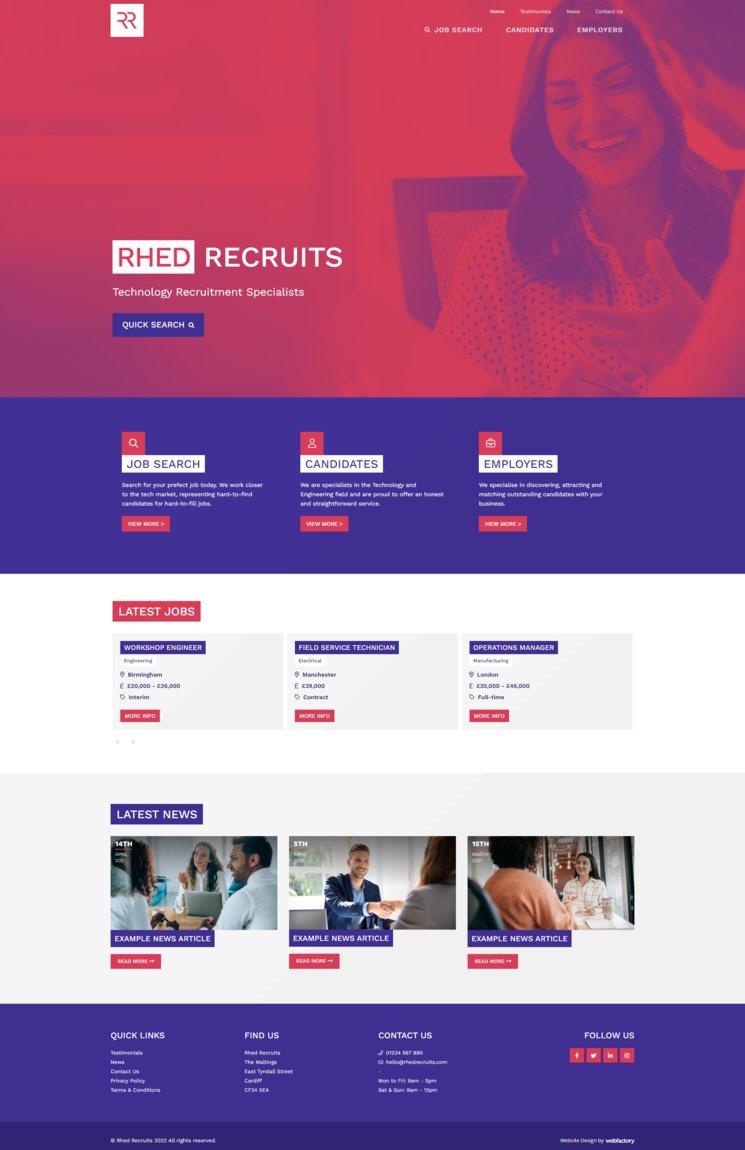
Image: Demo recruitment website showing an example of a home page.
About Us page
About pages are important to have on your website for due diligence. Here you can tell your visitors about your history, what you do and why you do it. You can add things like your company mission statement, photos of your staff or your location/office. It shows you are real people. Visitors love to see an insight into the company and who they would be potentially working with.
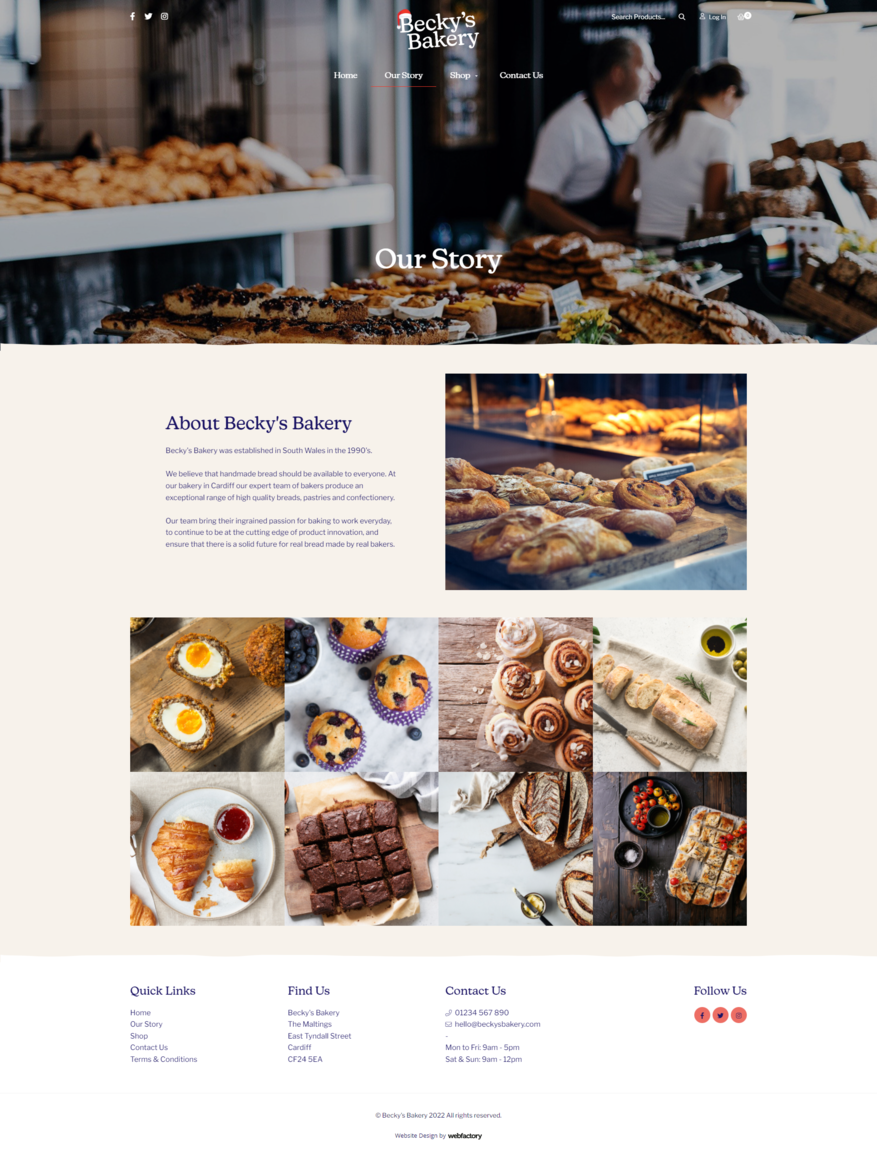
Image: Demo ecommerce website showing an example of an about page.
Services or Product pages
Promoting your Services/products is the main reason you have a website and so this type of page is essential for your website. These pages showcase your services and products and tell your visitors what you have to offer them. Depending on your business type you may just have a services page or a product page or may need both.
Services page: If you are a service-based company, this page would showcase the services you have to offer, what’s included in them and the prices or links to get a quote.
Products pages: If you sell products, a product page would be more suitable for you. Here you can showcase your product images, details and prices.
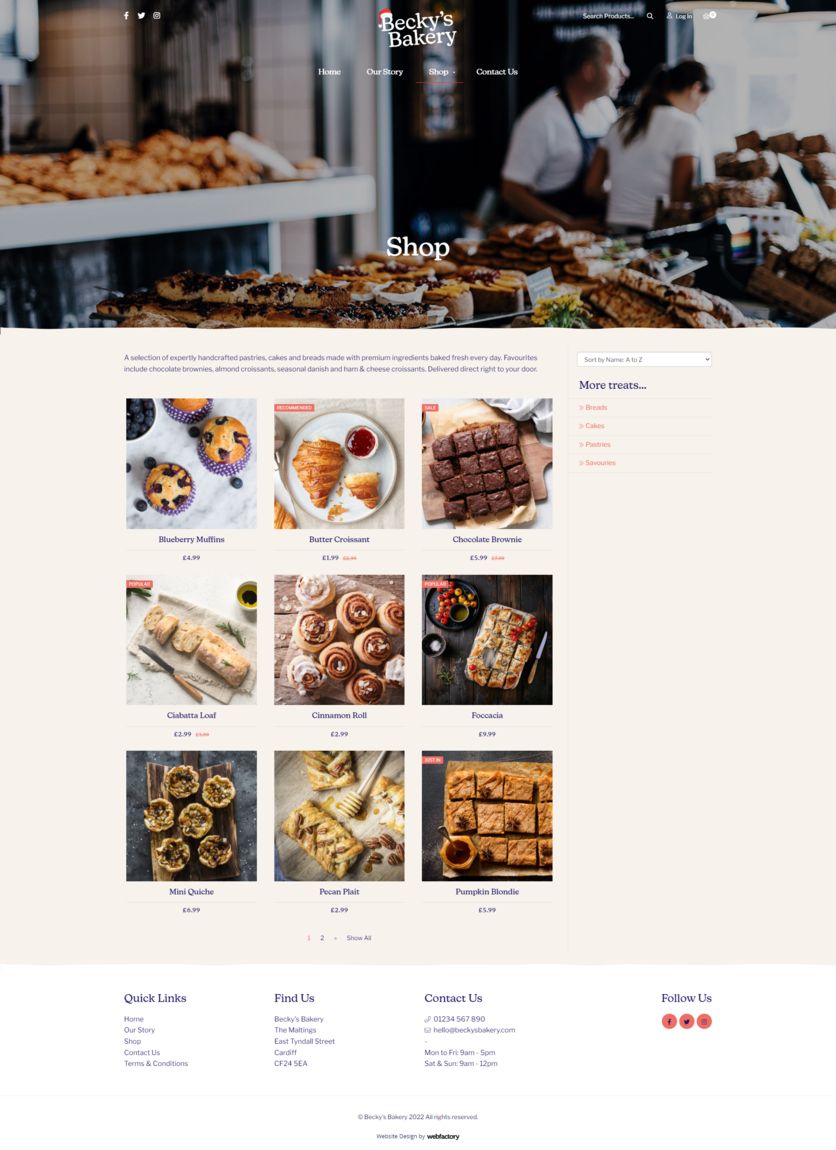
Image: Demo ecommerce website showing an example of a shop page
Portfolio, Gallery or Case Study pages
Portfolio, Gallery or Case Studies pages are great for proving that your great at what you do. These page types give your customers examples of work you have done before. Your business type depends on the type of pages you need:
Portfolio page: If you are a design company or make bespoke items, a portfolio is suitable for you. This can display images of your latest creations to showcase the quality of your services.
Gallery page: If you provide transformation services, such as a hairdresser or a builder/decorator, a gallery page would be suitable for your business type. Here you can upload before and after photos or simply show the after products to showcase the quality of your services.
Case studies page: If you are a service-based company, such as an interior designer or engineer, a case studies page could be suitable for your business type. Here you can show previous businesses you have worked with and how you helped them.
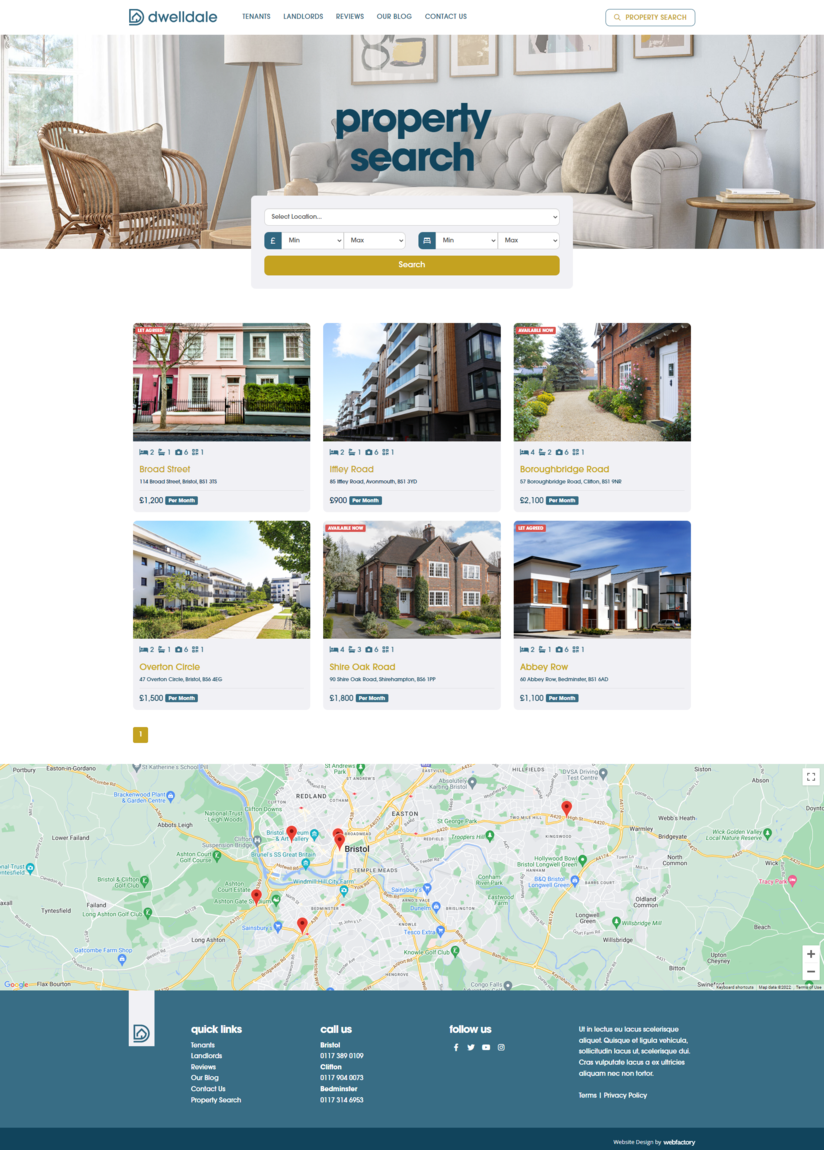
Image: Demo property website showing an example of a portfolio.
Contact page
Contact pages are very important to have. Once visitors see all the great things about your business you want them to contact you. A contact page should tell your customers all they need to know about how to get in touch. This page should include things like your contact number, email address, company address, company number (if applicable) and social media links. It’s also good to have a contact form.
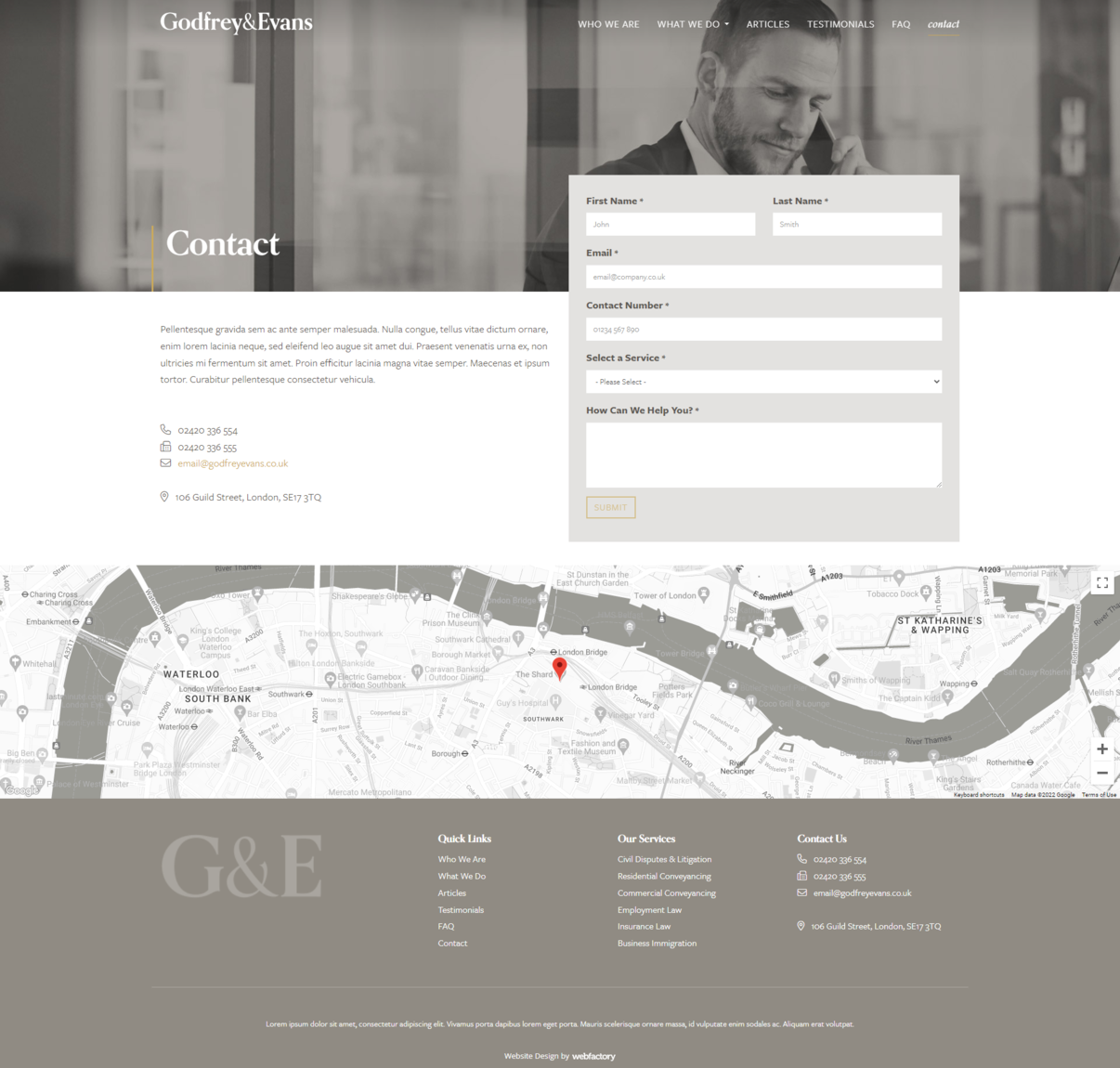
Image: Demo bespoke website showing an example of a contact page.
Further useful pages
In addition to these 5 essential pages, there are other useful pages to include on your website for potential customers to see:
Testimonial page: Testimonial pages are great for showing your customer's due diligence as proof of good service goes a long way. Here you should have reviews you have received via email, Facebook, Google, Trustpilot or any other review service.
Blog page: Blogs are a useful marketing tool for your business and great to share on social media. You can use your blogs to answer frequently searched topics or questions relating to your business. It’s also a great way of showing your customers that you know your stuff and are here to help them.
News page: News pages are great for keeping your customers up-to-date. They are also great for documenting company achievements or updates within your industry.
FAQ page: Frequently asked questions pages are very helpful and useful to potential customers. Here you can add in all the common questions you receive and answer them clearly to help sell your services. This can help customers decide if your services are for them. It also means your quote quality is better and more tailored to your customers as they will then know all they need to know before using your company.
Terms & Conditions: There is no legal obligation to have a Terms & Conditions page but they are useful to have. Clearly outlining the terms upon which you will be engaging with your customers can avoid issues in future. We always recommend being clear and concise rather than too legalistic. Generally, people are more reasonable if something is clearly pointed out in terms and conditions and not hidden in pages of legal texts.
Privacy Policy: With GDPR regulations, it's good to have a privacy policy page. This should clearly outline what you do with the data that is collected through your website and what you do to protect it. Check out our blog article on GDPR for further information.
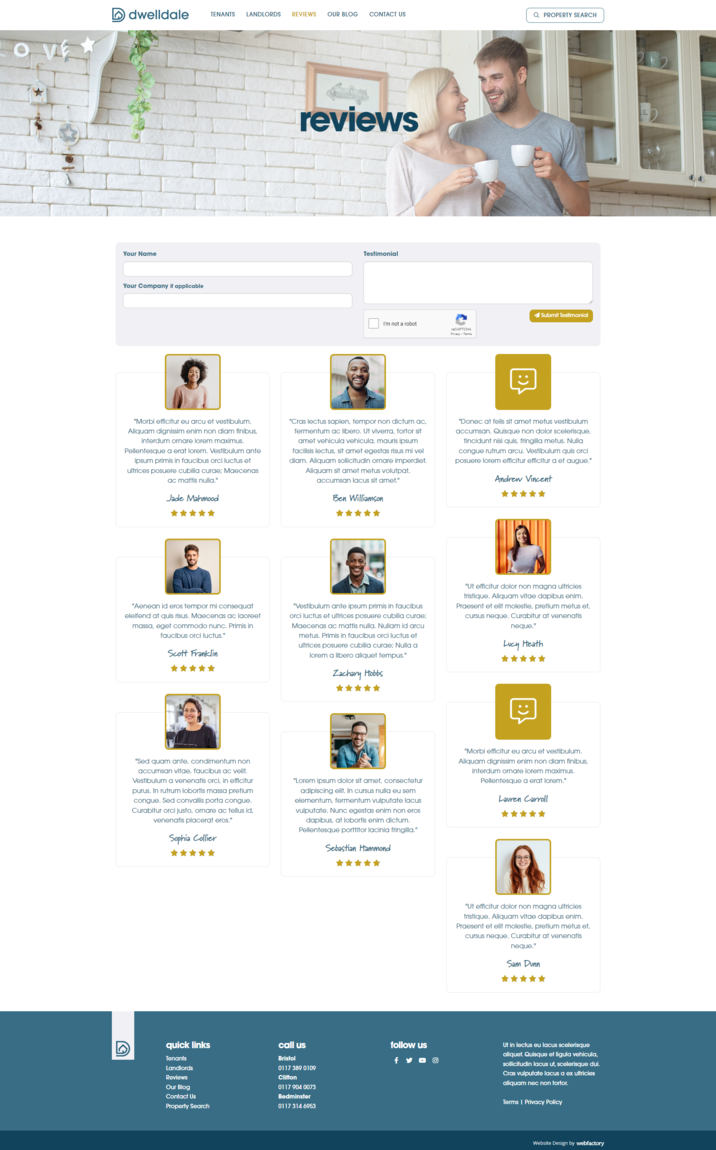
Image: Demo property website showing an example of a testimonial page.
Get in touch
We hope this article helps you with building your new website. If you are looking for a new website or advice on a new website get in touch for a free quote.